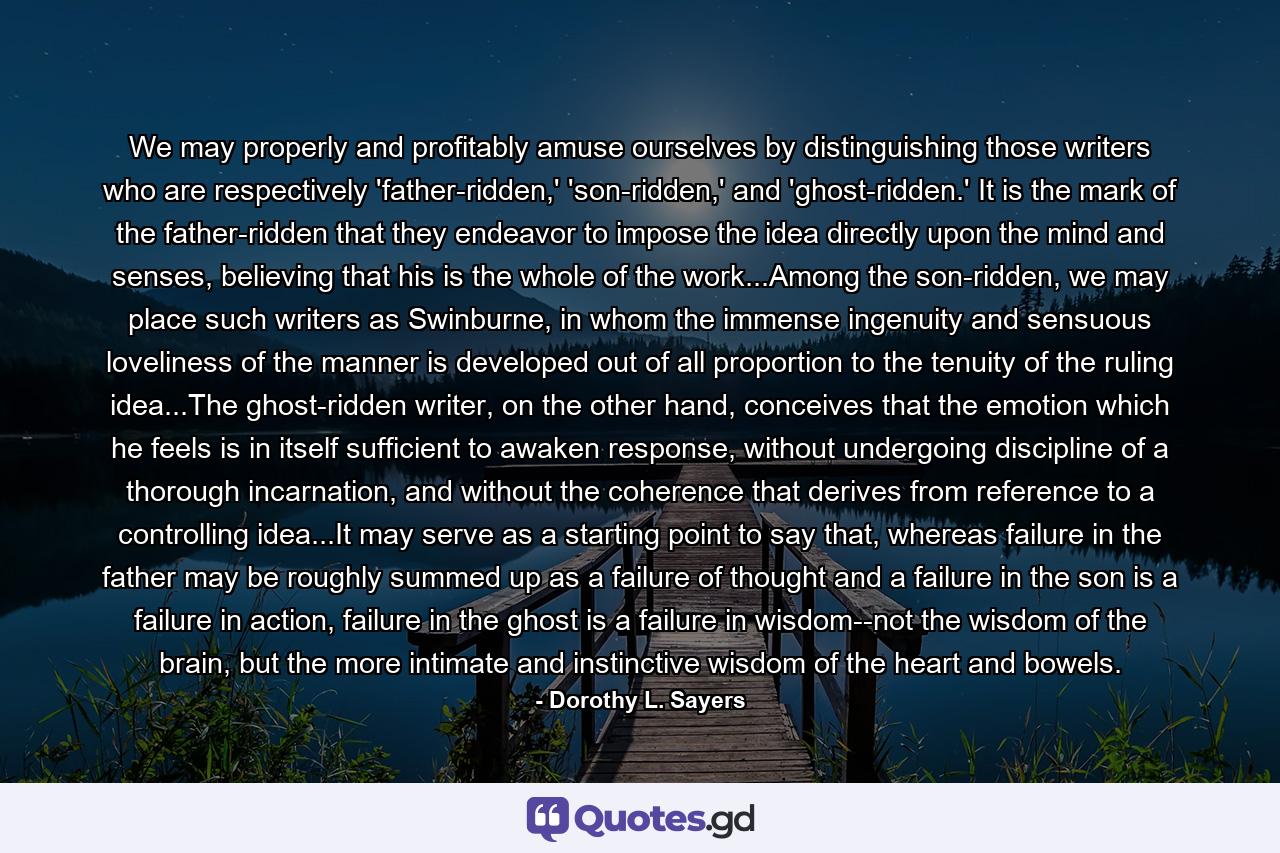We may properly and profitably amuse ourselves by distinguishing those writers who are respectively ‘father-ridden,’ ‘son-ridden,’ and ‘ghost-ridden.’ It is the mark of the father-ridden that they endeavor to impose the idea directly upon the mind and senses, believing that his is the whole of the work…Among the son-ridden, we may place such writers as Swinburne, in whom the immense ingenuity and sensuous loveliness of the manner is developed out of all proportion to the tenuity of the ruling idea…The ghost-ridden writer, on the other hand, conceives that the emotion which he feels is in itself sufficient to awaken response, without undergoing discipline of a thorough incarnation, and without the coherence that derives from reference to a controlling idea…It may serve as a starting point to say that, whereas failure in the father may be roughly summed up as a failure of thought and a failure in the son is a failure in action, failure in the ghost is a failure in wisdom–not the wisdom of the brain, but the more intimate and instinctive wisdom of the heart and bowels.
